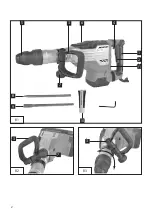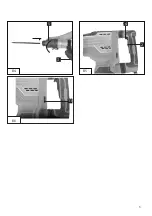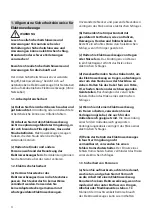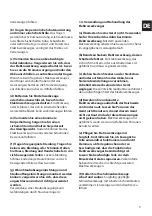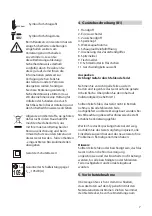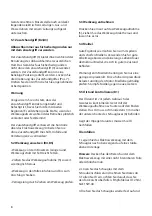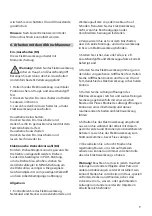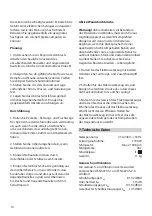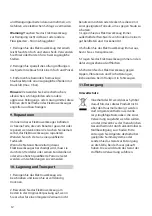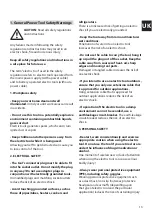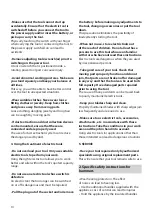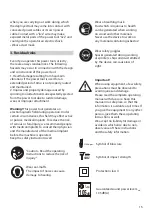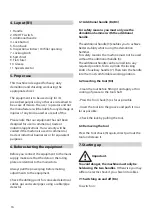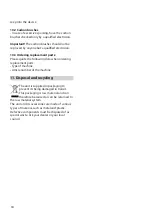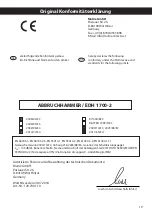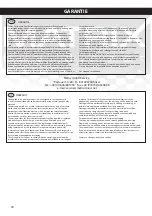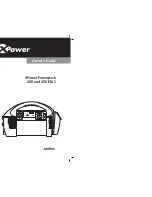
13
1. General Power Tool Safety Warnings
CAUTION:
Read all safety regulations
and instructions.
Any failures made in following the safety
regulations and instructions may result in an
electric shock, fire and/or serious injury.
Keep all safety regulations and instructions in
a safe place for future use.
The term “electric tool” used in the safety
regulations refers to electric tools operated from
the mains power supply (with a power cable)
and to battery operated electric tools (without a
power cable).
1. Workplace safety
• Keep your work area clean and well
illuminated.
Untidy or unlit work areas can result
in accidents.
• Do not use this tool in a potentially explosive
environment containing combustible liquids,
gases or dust.
Electric tools generate sparks, which can in turn
ignite dust or vapors.
• Keep children and other persons away from
the electric tool while it is being used.
Allowing yourself to get distracted can cause you
to lose control of the tool.
2. ELECTRICAL SAFETY
• The tool's connector plug must be able to fit
into the socket outlet. Do not modify the plug
in any way! Do not use adapter plugs in
conjunction with electrically grounded tools.
Unmodified plugs and matching socket outlets
reduce the risk of an electric shock.
• Avoid touching grounded surfaces, such as
those of pipes/tubes, heaters, cookers and
refrigerators.
There is an increased risk of getting an electric
shock if you are electrically grounded.
• Keep the tool away from rain and moisture/
wet conditions.
Penetration of water into an electric tool
increases the risk of an electric shock.
• Do not use the cable to carry the tool, hang it
up or pull the plug out of the socket. Keep the
cable away from sources of heat, oil, sharp
edges and moving tool parts.
Damaged or tangled cable increases the risk of
an electric shock.
• If you intend to use an electric tool outdoors,
ensure that you only use extension cable that
is approved for outdoor applications.
Using extension cable that is approved for
outdoor applications reduces the risk of an
electric shock.
• If operation of the electric tool in a damp
environment can not be avoided, use a
earthleakage circuit-breaker.
The earth-leakage
circuit-breaker reduces the risk of an electric
shock.
3. PERSONAL SAFETY
• Be alert, work conscientiously and exercise
appropriate caution when using the electric
tool. Do not use the tool if you are tired or are
under the influence of drugs/medication or
alcohol.
One moment of carelessness or lack of attention
when using the electric tool can cause serious
bodily injury!
• Always wear personal protective equipment
(PPE), including safety goggles.
Wearing personal protective equipment such
as a dust mask, non-slip footwear, protective
headgear and ear muffs (depending upon
the type of electric tool and the particular
application) reduces the risk of sustaining injury.
UK


